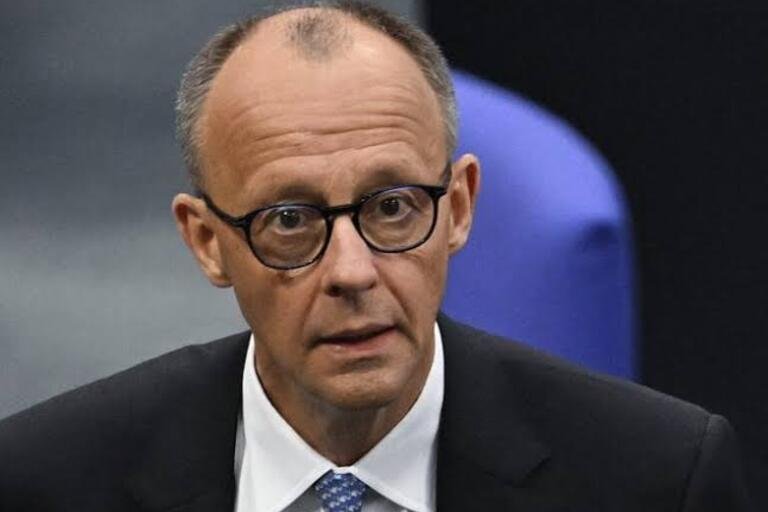Friedrich Merz has been elected Germany’s new chancellor, but only after an extraordinary day of political drama that saw him stumble badly in an initial vote—making him the first would-be leader in post-war German history to fall at the final hurdle before a last-minute comeback.
The conservative leader scraped through in a second round of voting on Tuesday, winning 325 of the 630 seats in the Bundestag, just enough to secure an absolute majority. Hours earlier, he had suffered a humiliating blow, falling six votes short despite his three-party coalition holding a paper-thin majority.
Merz’s coalition, made up of his Christian Democrats (CDU), the Christian Social Union (CSU) in Bavaria, and the centre-left Social Democrats (SPD), jointly control 328 seats. But only 310 MPs backed him in the secret ballot—sparking panic and finger-pointing as the result reverberated through the chamber.
Lawmakers left the Bundestag in stunned silence, fuelling speculation over internal dissent and whether Merz’s grip on power is already slipping.
The 69-year-old’s allies sprang into damage control, racing to hold talks and steady nerves. By the afternoon, he secured the votes needed in a second round, backed in part by opposition parties, and will now be formally sworn in by President Frank-Walter Steinmeier at Berlin’s Bellevue Palace.
The day’s chaos caps a turbulent few months in German politics. Merz’s centre-right bloc won snap elections in February, triggered by the collapse of Olaf Scholz’s fractious three-way coalition last November. After protracted negotiations, Merz’s CDU/CSU and the SPD signed their coalition deal just one day before the vote.
But the tight margin of victory—and the embarrassing failure to clinch the top job on the first attempt—has raised serious questions about the chancellor-elect’s authority at home and credibility abroad.
His coalition won less than 45% of the vote in February, leaving him vulnerable from the outset. That fragility was laid bare when he had to rely on backing from the opposition Greens and The Left just to hold a second vote on Tuesday.
Analysts say the instability could hand a major advantage to the far-right Alternative for Germany (AfD), which came second in February’s poll and has surged further amid anger over migration and economic stagnation. The party, recently classified as “confirmed right-wing extremist” by domestic intelligence, is now polling ahead of Merz’s conservatives in some surveys.
For Merz—who has never held government office despite decades in politics—the road ahead is steep. He inherits a faltering economy, the fallout from Donald Trump’s new tariffs, and the ongoing war in Ukraine. But after Tuesday’s wobble, his first challenge may be convincing both allies and opponents that he can stay the course.











